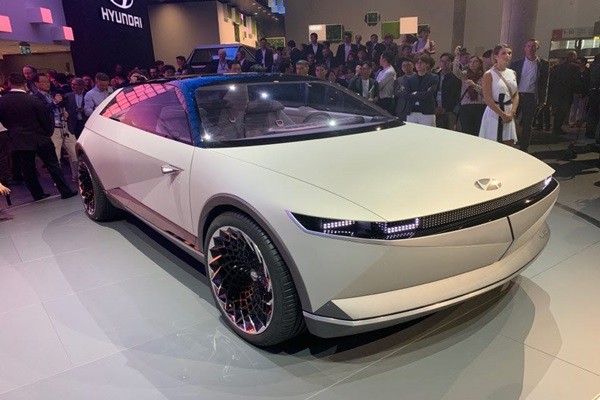The Hyundai Motor Group has decided to expand its list of electric vehicle (EV) battery pack suppliers that currently only includes Hyundai Mobis.
Its decision comes from the fact that Hyundai Mobis will not be able to handle every supply of EV battery packs due to an expansion of the EV market and it wants to induce a systematic change in its current internal combustion engine parts suppliers according to an era of electrification. Its decision is expected to cause changes in the current ecosystem of South Korea’s parts industry centered on internal combustion engine.
According to the industry on Monday, the Hyundai Motor Group recently selected Sebang Global Battery to be part of its EV battery suppliers.
Until now, the Hyundai Motor Group has received EV battery modules and packs manufactured by HL Green Power, which is a joint venture between Hyundai Mobis and LG Energy Solution, only through Hyundai Mobis. This is the first time that the Hyundai Motor Group selected another partnering company to supply EV battery packs that cost the most out of EV parts. Its strategy to be leaders along with its partnering companies in this era of electrification is behind its recent decision.
The group plans to select additional subcontractor for EV battery packs by the end of this year. It is reported that INZI Controls that manufacturers internal combustion engine parts such as engine temperature control device and Sambo Motors that manufactures automatic transmission are considered as potential candidates. It is estimated that the amount of EV battery pack supply that the subcontractors including Sebang Global Battery will deliver to the group will start from tens of thousands of units this year and increase to hundreds of thousands of units next year.

Sebang Global Battery’s core business revolves around starting lead-acid batteries under a brand name called ‘ROCKET’. Starting from now on, the company will manufacture battery systems that include battery modules and packs for driving based on lithium-ion rechargeable batteries.
Sebang Lithium Battery, which is a subsidiary of Sebang Global Battery, already invested $103 million (115 billion KRW) in Pyeongdong Industrial Complex early this month and held a groundbreaking ceremony for a 30,000 m2 battery module/pack production plant. Battery modules and packs will be manufactured from the plant starting from the second half this year.
“Although it can be seen that the Hyundai Motor Group is looking to diversify its suppliers of battery modules and packs by selecting subcontractors, it is more meaningful from a standpoint that the group is trying to induce changes in its partnering companies so that they can prepare for an era of electric vehicles.” said one official from the Hyundai Motor Group’s partnering company. “The group will look to select a variety of secondary and tertiary partnering companies that manufacture other relevant parts here and out.”
The Hyundai Motor Group also plans to be very active in creating jobs and providing financial support in order to induce transition to parts used for electric vehicles. This is because the entire ecosystem including its current partnering companies will play a significant role in helping the group secure competitive edge in electric vehicles.
“Not only does successful entry by automotive parts manufacturers into future car industries help them to survive in the industries, but it also determines competitive edge of South Korea’s future car industry.” said one official from the Hyundai Motor Group. “Our investment fund for future cars that was signed by the South Korean government and the financial industry will also be a steppingstone for companies that currently manufacture parts for internal combustion engines to prepare for electric vehicles and autonomous vehicles.”
Meanwhile, Hyundai Motor Company plans to release twelve electric vehicles by 2025 and is looking to increase the percentage of its electric vehicle sales in the global market up to 10% by selling 560,000 electric vehicles annually. Kia Motors also plans to release seven electric vehicles and four derived electric vehicles by 2026 and establish a full lineup of electric vehicles.
Staff Reporter Park, Taejoon | gaius@etnews.com